Was divided equally between Victor Franz Hess ‘for his discovery of cosmic radiation’ and Carl David Anderson ‘for his discovery of the positron’.
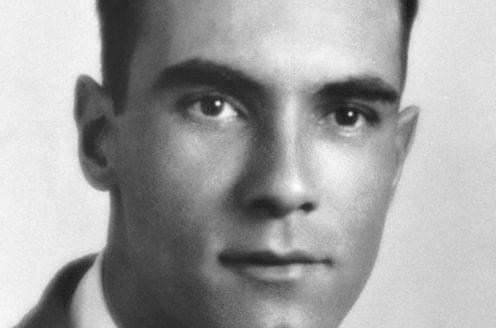

PBS Member Stations rely on viewers like you. To support your local station, go to: http://to.pbs.org/DonateSPACE
Sign Up on Patreon to get access to the Space Time Discord!
https://www.patreon.com/pbsspacetime.
Physics is the business of figuring out the structure of the world. So are our brains. But sometimes physics comes to conclusions that are in direct conflict with concepts fundamental to our minds, such as the realness of space and time. How do we tell who’s correct? Are time and space objective realities or human-invented concepts?
Check out the Space Time Merch Store.
https://www.pbsspacetime.com/shop.
Sign up for the mailing list to get episode notifications and hear special announcements!
https://mailchi.mp/1a6eb8f2717d/spacetime.
Search the Entire Space Time Library Here: https://search.pbsspacetime.com/
😗
After successful recommissioning in autumn 2022, the Greifswald nuclear fusion experiment has surpassed an important target. In 2023, an energy turnover of 1 gigajoule was targeted. Now the researchers have even achieved 1.3 gigajoules and a new record for discharge time on Wendelstein 7-X: the hot plasma could be maintained for eight minutes.
During the three-year completion work that ended last summer, Wendelstein 7-X was primarily equipped with water cooling for the wall elements and an upgraded heating system. The latter can now couple twice as much power into the plasma as before. Since then, the nuclear fusion experiment can be operated in new parameter ranges.
“We are now exploring our way towards ever higher energy values,” explained Prof. Dr. Thomas Klinger, head of the Stellarator Transport and Dynamics Division at the Max Planck Institute for Plasma Physics (IPP) in Greifswald. “In doing so, we have to proceed step by step so as not to overload and damage the facility.”

He was ranked the number 1 most influential neuroscientist in the world by Semantic Scholar in 2016, and has received numerous awards and accolades for his work. His appointment as chief scientist of Verses not only validates their platform’s framework for advancing AI implementations but also highlights the company’s commitment to expanding the frontier of AI research and development.
Friston is short listed for a Nobel Prize, is one of the most cited scientists in human history with over 260,000 academic citations, and invented all of the mathematics behind the fMRI scan. As one pundit put it, “what Einstein was to physics, Friston is to Intelligence.”
Indeed Friston’s expertise will be invaluable in helping the company execute its vision of deploying a plethora of technologies working toward a smarter world through AI.
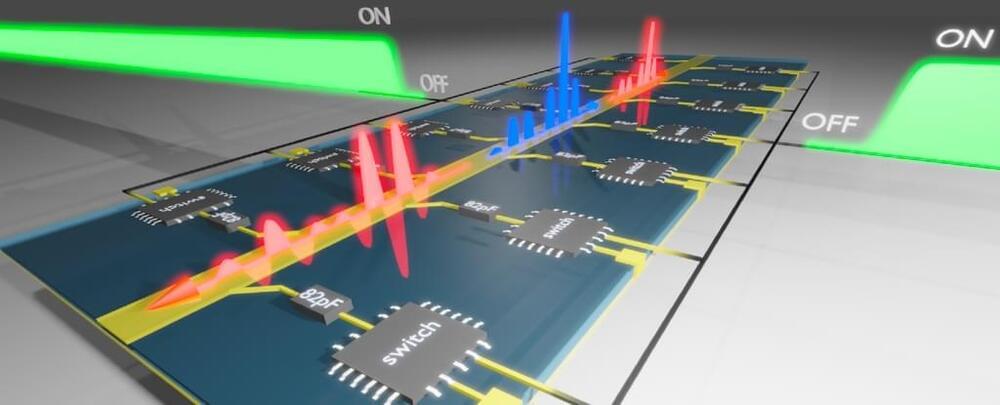
Walk through a maze of mirrors, you’ll soon come face to face with yourself. Your nose meets your nose, your fingertips touch at their phantom twins, stopped abruptly by a boundary of glass.
Most of the time, a reflection needs no explanation. The collision of light with the mirror’s surface is almost intuitive, its rays set on a new path through space with the same ease as a ball bouncing off a wall.
For over sixty years, however, physicists have considered a subtly different kind of reflection. One that occurs not through the three dimensions of space, but in time.
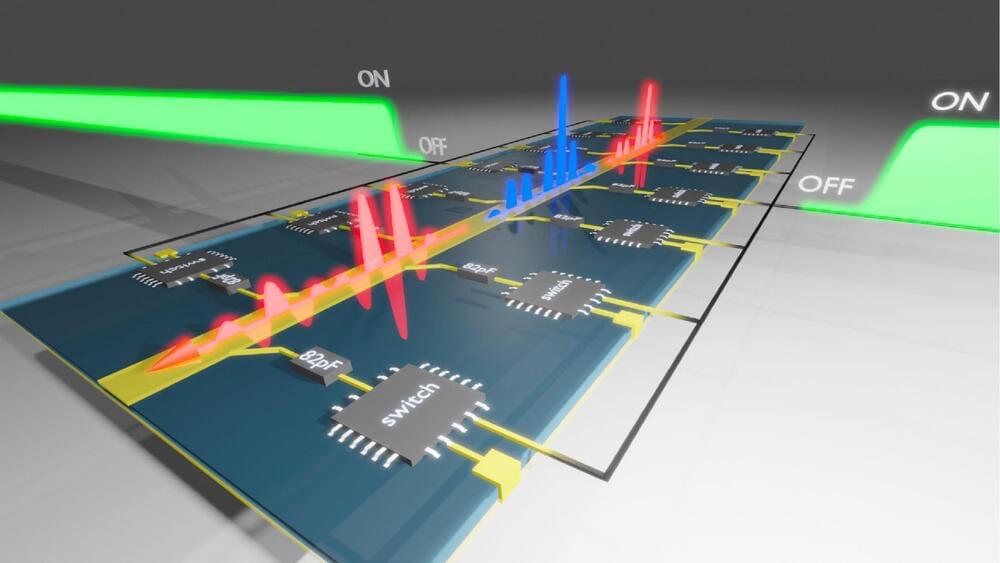
The breakthrough experiment could lead to low-energy, wave-based computers and new applications for wireless communications.
Researchers at the Advanced Science Research Center at the CUNY Graduate Center (CUNY ASRC) performed a breakthrough experiment in which they observed time reflections of electromagnetic signals in a tailored metamaterial.
Time reflection versus spatial reflection.
Andrea Alu.
The scientists, who published their findings in a paper in Nature Physics, were able to successfully cause time reversal as well as frequency conversion of broadband electromagnetic waves in their experiments.
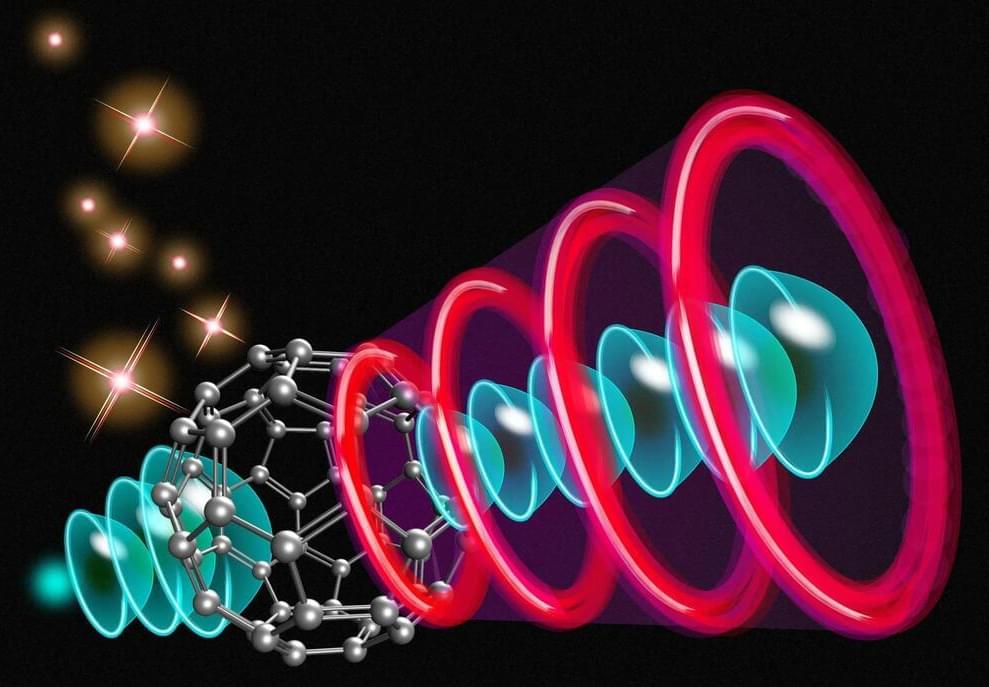
An international team of researchers, including those from the University of Tokyo’s Institute for Solid State Physics, has made a groundbreaking discovery. They have successfully demonstrated the use of a single molecule named fullerene as a switch, similar to a transistor. The team achieved this by employing a precisely calibrated laser pulse, which allowed them to control the path of an incoming electron in a predictable manner.
The switching process enabled by fullerene molecules can be significantly faster than the switches used in microchips, with a speed increase of three to six orders of magnitude, depending on the laser pulses utilized. The use of fullerene switches in a network could result in the creation of a computer with capabilities beyond what is currently achievable with electronic transistors. Additionally, they have the potential to revolutionize microscopic imaging devices by providing unprecedented levels of resolution.
Over 70 years ago, physicists discovered that molecules emit electrons in the presence of electric fields, and later on, certain wavelengths of light. The electron emissions created patterns that enticed curiosity but eluded explanation. But this has changed thanks to a new theoretical analysis, the ramification of which could not only lead to new high-tech applications but also improve our ability to scrutinize the physical world itself.
How does the brain retrieve memories, articulate words, and focus attention? Recent advances have provided a newfound ability to decipher, sharpen, and adjust electrical signals relevant to speech, attention, memory and emotion. Join Brian Greene and leading neuroscientists György Buzsáki, Edward Chang, Michael Halassa, Michael Kahana and Helen Mayberg for a thrilling exploration of how we’re learning to read and manipulate the mind.
The Kavli Prize recognizes scientists for their seminal advances in astrophysics, nanoscience, and neuroscience — topics covered in the series “The Big, the Small, and the Complex.” This series is sponsored by The Kavli Foundation and The Norwegian Academy of Science and Letters.
Participants:
Michael Halassa.
Edward Chang.
Michael Kahana.
Helen S. Mayberg.
György Buzsáki.
Moderator:
Brian Greene.
SHARE YOUR THOUGHTS on this program through a short survey: https://survey.alchemer.com/s3/6752217/WSF-2022-Decoding-the-Brain.
WSF Landing Page Link: https://www.worldsciencefestival.com/programs/decoding-the-brain/

Was divided, one half jointly to Leo Esaki and Ivar Giaever ‘for their experimental discoveries regarding tunneling phenomena in semiconductors and superconductors, respectively’ and the other half to Brian David Josephson ‘for his theoretical predictions of the properties of a supercurrent through a tunnel barrier, in particular those phenomena which are generally known as the Josephson effects’
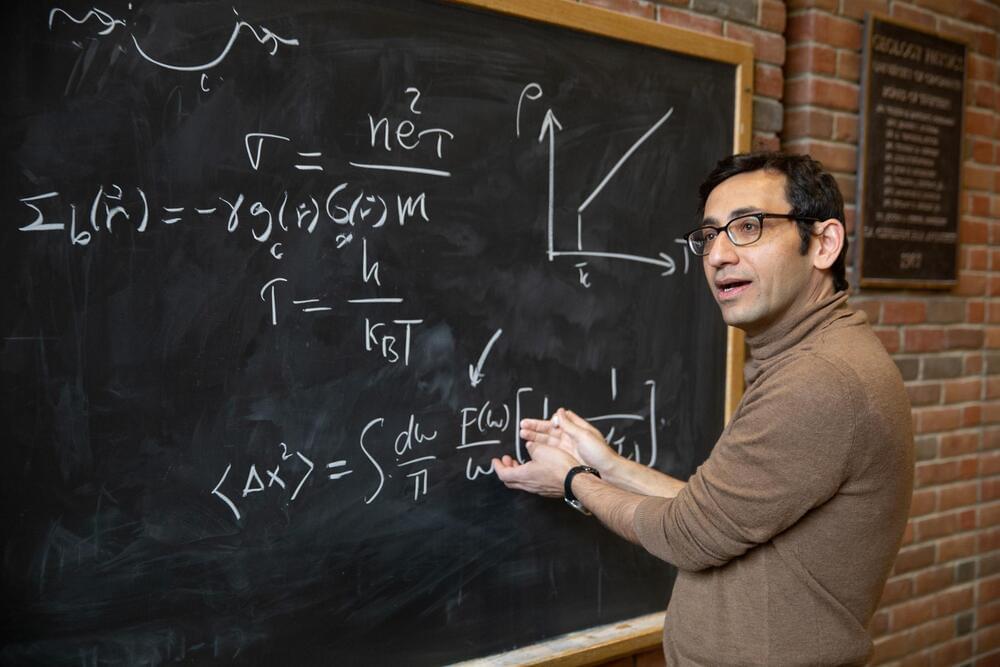
Physicists are learning more about the bizarre behavior of “strange metals,” which operate outside the normal rules of electricity.
Theoretical physicist Yashar Komijani, an assistant professor at the University of Cincinnati, contributed to an international experiment using a strange metal made from an alloy of ytterbium, a rare earth metal. Physicists in a lab in Hyogo, Japan, fired radioactive gamma rays at the strange metal to observe its unusual electrical behavior.
Led by Hisao Kobayashi with the University of Hyogo and RIKEN, the study was published in the journal Science. The experiment revealed unusual fluctuations in the strange metal’s electrical charge.